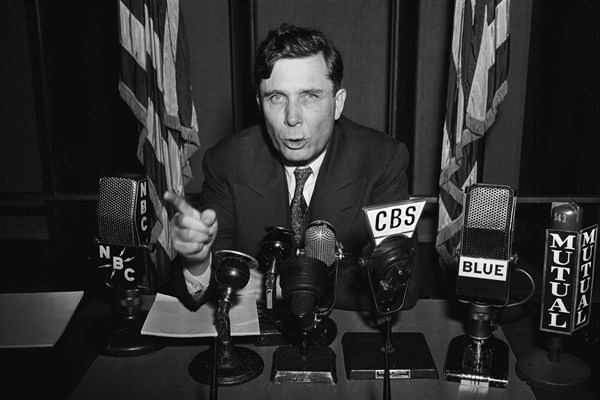Seventy-seven years ago this summer, Wendell Willkie did something remarkable. The failed Republican presidential candidate, defeated by Franklin D. Roosevelt in 1940, embarked on a round-the-world tour that helped expand America’s horizons and propel the nation toward a policy of internationalism that shaped the postwar global order. Undertaken at FDR’s behest, Willkie’s 49-day odyssey captured the American imagination and lifted his country in thought and spirit.
“One World,” his hopeful account of that trip, quickly became one of the best-selling nonfiction books in American history, with a print run of more than 2 million copies. Its thesis was plain: The world had “become small and completely interdependent,” he wrote. “There are no distant points in the world any longer.” The United States had no choice but to grasp the leadership that history had bestowed upon it. Fortunately, he had found in every country “a gigantic reservoir of good will towards us, the American people.”
Nearly eight decades later, “One World” remains essential reading, as an antidote and rejoinder to the Trump administration’s cynical, nativist, protectionist, isolationist and unilateral foreign policy.

